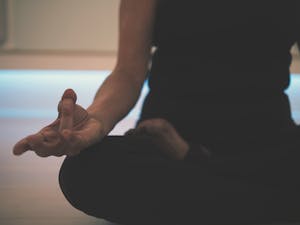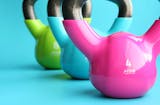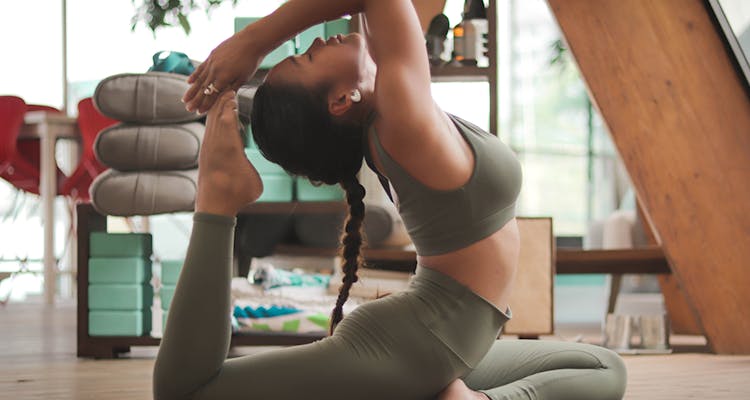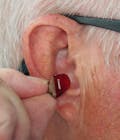As a student, you might feel overwhelmed by a sedentary lifestyle, unhealthy coping mechanisms, and tremendous stress from your studies. It can stay unnoticed at first. Yet, stress can build up for months and result in physical pain or mental health struggles. How can you prevent burnout and anxiety from creeping on you?
First of all, you should review your time management and create a schedule. Then, deal with an avalanche of homework with the dissertation writers help. It will significantly decrease stress and clear up your timetable. Only then can you start looking for healthy techniques that would allow you to recharge.
Physical exercises are perfect for people of any age, background, and culture. Yoga is much more than just a set of exercises. It is a combination of mental and physical practices that improve your mental health and physical resilience. It is considered one of the best ways to deal with anxiety and other disorders.
Contents
What is Anxiety?
Many people misinterpret anxiety as a feeling of nervousness or uneasiness. While it is normal to be anxious about significant events in your life, anxiety disorder is a much more serious issue. It may interfere with your daily activities, academic performance, and relationships. Even if you have never experienced it, you can acquire it after a long period of stress (for instance, because of essay writing and tests) or a traumatic event.
Mental health professionals differentiate between generalized anxiety disorder, social anxiety, and specific phobias. The worst part is that anxiety usually comes hand in hand with other disorders. If untreated, it can develop into depression. The most common symptoms include:
- Restlessness and nervousness that don’t go away
- Feeling of danger or doom
- Hyperventilation or having issue breathing during anxious episodes
- Increased heart rate or heaviness in the chest
- Trouble sleeping
- Upset stomach or loss of appetite
- Swearing, trembling, and feeling tired no matter how much you rested
- Avoiding social interactions or any triggering events
You may experience some of these symptoms, but they are not exclusive to anxiety disorders. If you feel that you need professional assistance, you should reach out for help. Contact your college counselor or free assistance line in case of emergency. At the same time, talk to your friends and family for additional support.

Why Is Yoga Popular?
Above everything, yoga is a cultural practice originating in India. It is important to be respectful of traditions and listen to practitioners coming from the culture. The practice was adopted and adapted by Western culture as a mindfulness and wellness practice. It is beneficial for many disorders because of the breathing techniques and deliberate focus on body control.
Yoga helps you to learn techniques that can easily ground you in a moment of distress. Instead of panicking, your body will know how to relax and reduce the impact of a panic attack. Yoga is also an affordable and welcoming practice. All it requires is your attention and desire to practice.
However, be cautious about starting your journey in you have any of the following health conditions:
- High or low blood pressure
- Back injuries
- Osteoporosis
- Eye diseases like glaucoma
Self-Calming
The first thing people do after experiencing a panic attack or tremendous anxiety is rationalize their behavior. Why did it happen? Why have I reacted this way? Then comes the guilt and shame of experiencing intense emotions.
Yoga is perfect for anxiety disorders because you are allowed to experience your worries without judgment. Yoga allows you to focus on the moment. Let yourself adjust and calm down. Tearing yourself apart doesn’t help anyone.
You let yourself sit and relax instead of clenching your teeth and causing more self-harm. Breathing techniques reduce body reactions, while clearing your mind allows you to come back to your senses. These skills also benefit you in your academic progress – with concentration, you have more sense of control over your studies.
Better Perception of Time
After COVID, many people struggle with regaining a healthy perception of time. The time doesn’t work like it used to anymore, it seems. However, you can put it back on the right track.
Yoga resets your internal clock and helps you to better navigate through your day. If you really want to master the art of time management, yoga will change your idea of time. You rewire your brain to be more sensitive to time and see a clear difference between “now” and “then.” It is a good detox from the informational clutter and anxiety-inducing social media scrolling.
More Self-Awareness
Self-awareness is closely associated with your identity. Many students experience anxiety and stress because their identity is challenged daily. At the same time, you are experiencing your formative years, when even the smallest thing can change your perspective on your fundamental views.
Yoga helps you to develop a sense of self-awareness. You can achieve it through meditation and continuous self-work. Physical practice is only a technique that lets you accomplish these heights.
More Self-Acceptance
It is only logical to accept yourself as you are. Yoga connects the sense of your body and your mind. It is a perfect way to improve your self-esteem and mood and nurture healthy self-care practices. When you are in tune with yourself, you are less likely to experience pressure or stress.
Yoga Styles for Beginners
- Satyananda : This type of yoga includes gentle poses, controlled breath, deep relaxation, and meditation. It suits beginners best.
- Hatha yoga : This style also includes gentle poses and concentration on breathing.
- Power yoga : This style is more intense and dynamic, involving more movement and technique.
Conclusions
Yoga is the best and most accessible practice you can add to your daily routines. It costs you zero dollars and doesn’t require any specific equipment to perform. You may not feel immediate relief, but it is a continuous process. Combine it with a healthy eight hours of sleep, a balanced diet, and support from your friends and family, and you get the most effective anxiety treatment.






Comments are off this post!